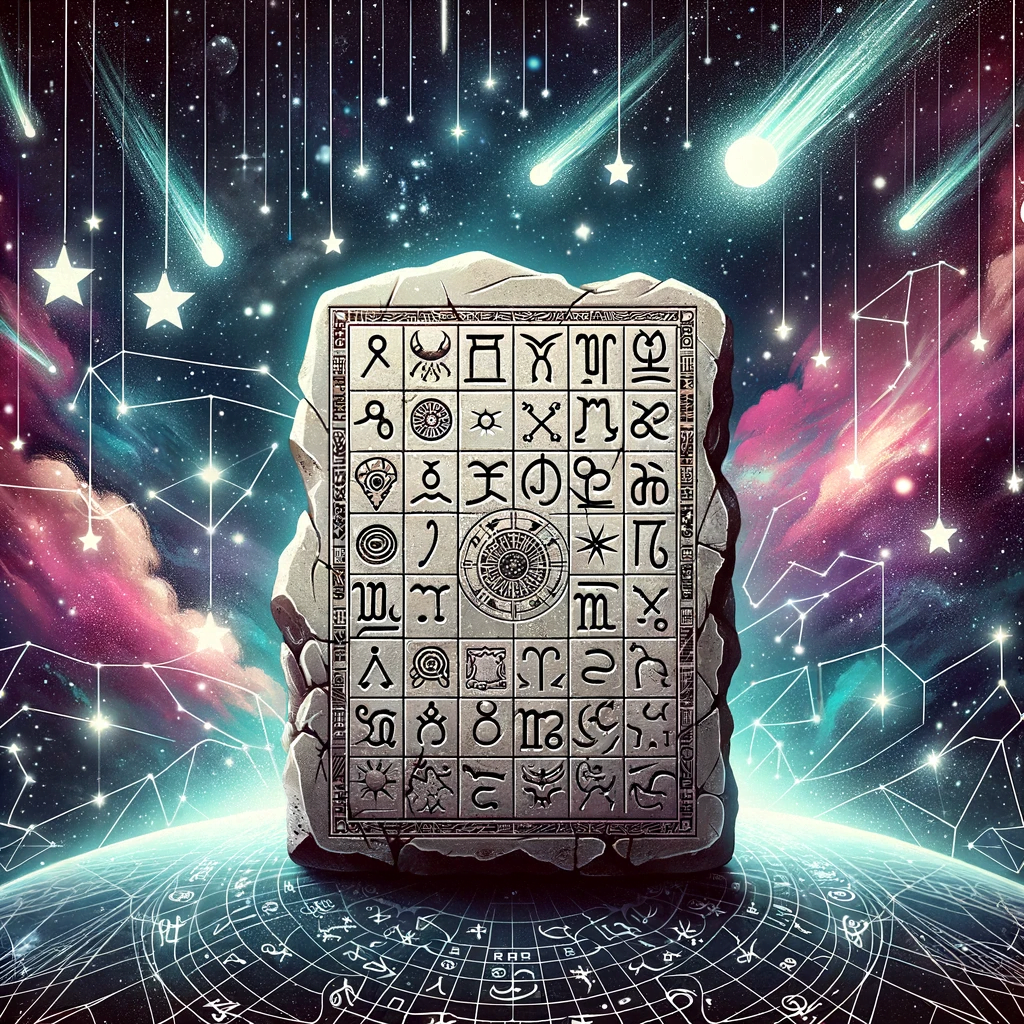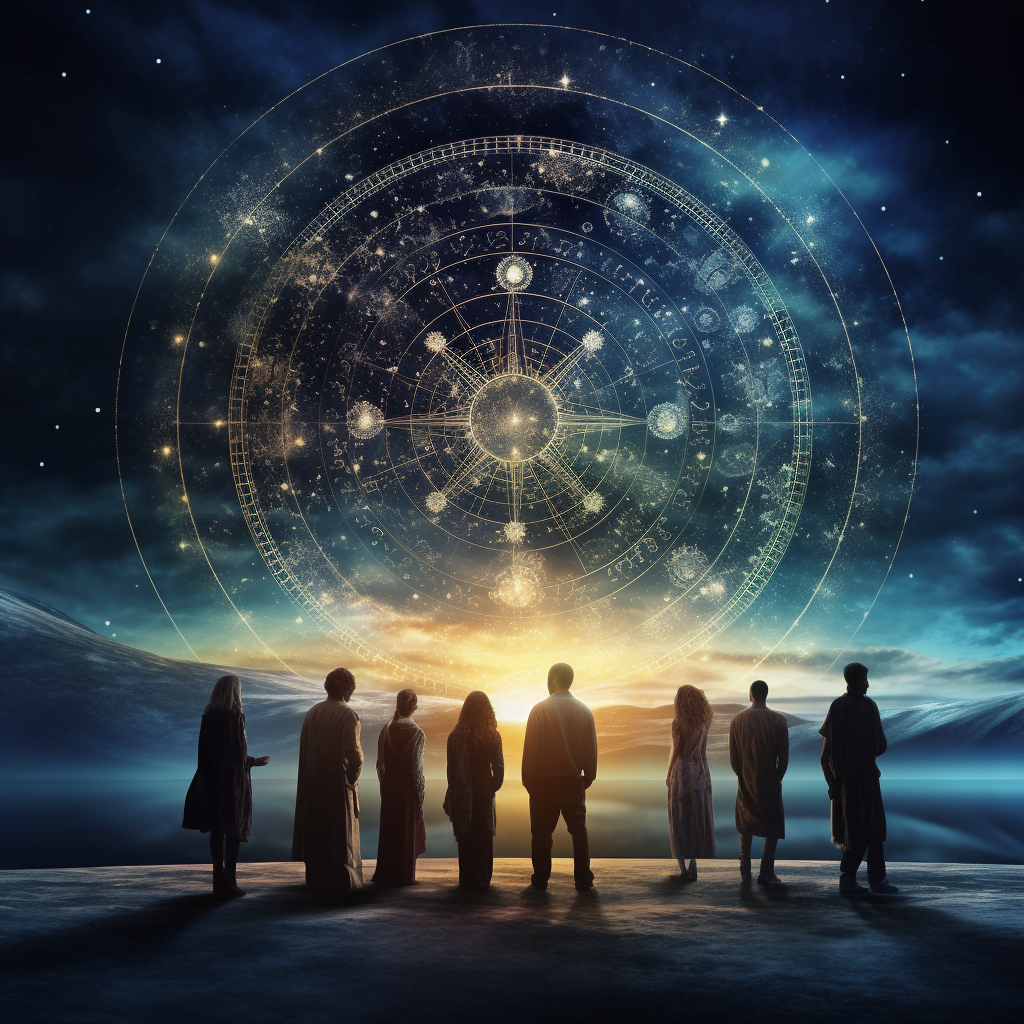Dating back to ancient civilizations, the origins of zodiac signs can be traced to a time when humans sought meaning in the celestial bodies that adorned the night sky. With a deep fascination for the movement of the planets and stars, our ancestors observed patterns and assigned distinct personality traits and characteristics to each astrological sign. In this article, we will explore the intriguing history of zodiac signs and delve into the question of when they first emerged as a concept.
Ancient Origins of Astrology
Astrology, as a system of divination and a means of understanding the natural world, can be traced back to ancient civilizations. The study of celestial bodies and their perceived influence on human affairs dates back millennia. From Mesopotamia to Greece, from the Roman Empire to the Arab and Persian world, astrology has evolved and attracted the attention of scholars and enthusiasts alike. In this article, I will explore the ancient origins of astrology and its enduring appeal.
Early Use of Astrology
The earliest known evidence of astrology can be found in ancient Mesopotamia, which is present-day Iraq. Mesopotamians believed that the movements of celestial bodies held significant meaning and could provide insights into the future. They developed complex methods of charting and interpreting the positions of the stars and planets, laying the foundation for what would become astrology.
The Mesopotamians were particularly interested in predicting celestial events, such as eclipses, as well as understanding their impact on human lives. These early astrologers believed that the motions of the planets and stars reflected the will of the gods and could be utilized to make predictions about individual destinies and cosmic events.
The Origins of Zodiac Signs in Mesopotamia
One of the fundamental components of astrology is the zodiac, a belt of space divided into twelve equal parts, each named after a specific constellation. The concept of the zodiac can be traced back to ancient Mesopotamia, where it was used for both astrological and calendrical purposes.
The Mesopotamians divided the ecliptic, the apparent path of the Sun across the sky, into twelve equal sections, each associated with a particular constellation. These constellations, such as Aries, Taurus, and Gemini, formed the basis for the zodiac signs we are familiar with today.
The Greek Contribution to Astrology
The impact of ancient Greek civilization on the development of astrology cannot be overstated. As the birthplace of Western philosophy and science, the Greeks furthered the study of astrology during the Hellenistic period.
The Hellenistic Period
During the Hellenistic period, which spanned roughly from the death of Alexander the Great in 323 BCE to the establishment of the Roman Empire in 31 BCE, astrology gained considerable popularity. Greek astronomers and mathematicians made significant advancements in the field, refining existing techniques and introducing new methods of astrological interpretation.
Astrologers during this period focused on the relationship between celestial bodies and human events, seeking to understand the connection between planetary movements and the qualities and experiences of individuals. The concept of the horoscope, a chart representing the positions of the planets at the time of an individual’s birth, became an integral part of astrology during this time.
The Role of Ptolemy
Among the notable figures in the ancient Greek world who contributed to astrology was Claudius Ptolemy, a mathematician, astronomer, and astrologer who lived in the 2nd century CE. Ptolemy’s work, particularly his book “Tetrabiblos,” became a foundational text in the field and exerted a significant influence on future astrologers.
Ptolemy emphasized the importance of the Sun, Moon, and planets in shaping an individual’s character and destiny. He developed a complex system of astrological calculations and provided guidelines for interpreting various planetary configurations. Ptolemy’s ideas formed the basis for much of the astrological knowledge that was transmitted to subsequent generations.
Influence of Roman Empire
The Roman Empire played a crucial role in the dissemination and expansion of astrology throughout Europe and beyond. The Romans, known for their assimilation of various cultural practices, adopted astrology from the Greeks and developed their own interpretations.
Spread of Astrology to Rome
Astrology reached Rome through its contact with the Hellenistic world. The Romans encountered the astrological practices of the Greeks and recognized their potential usefulness. Over time, astrology became increasingly integrated into the Roman way of life, influencing decisions of individuals and even the state.
The Roman elite, including emperors and senators, consulted astrologers for guidance in making important decisions and understanding their own fate. The popularity of astrology spanned across all strata of society, with the general population seeking astrological insights and horoscopes.
Development of Roman Zodiac Signs
While the Romans largely adopted the Greek zodiac signs, they made some modifications to the system. Roman astrologers associated each zodiac sign with specific personality traits, taking into consideration the Roman cultural and societal context.
For instance, Aries, the first sign of the zodiac, was associated with the characteristics of a Roman soldier – bravery, assertiveness, and a love for adventure. Similarly, other zodiac signs were linked to Roman archetypes, providing a unique interpretation of the zodiac within the Roman Empire.
Arab and Persian Astrologers
Astrology continued to evolve and flourish in the Arab and Persian world, thanks to the translation and preservation of Greek astrological texts and the contributions of prominent scholars.
Translation and Preservation of Greek Astrological Texts
During the Islamic Golden Age, which lasted from the 8th to the 14th century, Arab and Persian scholars actively engaged with the fields of astrology and astronomy. They recognized the value of ancient Greek texts and embarked on a massive project of translating and preserving these works, including those related to astrology.
Through these translations, astrological knowledge from the ancient Greeks was preserved and became accessible to a wider audience. Arabic became a lingua franca of astrology in the medieval period, and these translated texts served as primary sources for future astrologers and scholars.
Advancements in Astrology by Arab and Persian Scholars
Arab and Persian astrologers made significant advancements in the field, building upon the knowledge of their Greek predecessors. They developed sophisticated techniques for charting and interpreting celestial alignments, refining astrological calculations, and exploring the interplay between celestial bodies and human experiences.
Prominent figures such as Al-Kindi, Abu Ma’shar, and Al-Biruni made substantial contributions to astrology during this time, further enriching the field with their insights and discoveries. The astrological traditions established by these scholars continued to shape astrological practice in the Islamic world and beyond.
The Renaissance Period
After a period of decline in Western astrology during the medieval era, the Renaissance witnessed a revival of interest in the subject. Astrology once again captured the attention of scholars and intellectuals as they sought to understand the interconnectedness of the natural world and human existence.
Revival of Astrology in Europe
The Renaissance saw a resurgence in the study of astrology, with scholars such as Marsilio Ficino and Giovanni Pico della Mirandola incorporating astrological principles into their philosophical and mystical frameworks. Astrology became an integral part of the curriculum in universities, and astrological treatises were widely published.
The rediscovery and translation of ancient Greek and Arabic astrological texts played a crucial role in this revival. Renaissance astrologers made efforts to reconcile various astrological traditions, creating a synthesis that drew upon both ancient wisdom and contemporary observations.
Integration of Zodiac Signs in Horoscopes
During the Renaissance, horoscopes became increasingly popular as a means of understanding individual character and predicting future events. Astrologers would cast a horoscope, a personalized chart representing the positions of celestial bodies at the time of an individual’s birth, and interpret it to provide insights into their personality and potential life paths.
Zodiac signs, derived from the positions of the Sun and other planets at the time of birth, played a central role in horoscopic interpretation. Each zodiac sign was associated with specific traits and attributes, offering a framework for understanding individual differences and compatibility.
Modern Popularity of Zodiac Signs
Astrology, including the use of zodiac signs, continued to captivate the imaginations of people in the modern era. The popularity of astrology surged in the 20th century, and zodiac signs became a significant cultural phenomenon.
The Rise of Horoscope Columns
Newspapers and magazines started featuring horoscope columns, providing daily or weekly predictions for each zodiac sign. These columns gained immense popularity, with readers eagerly turning to their horoscopes for guidance, amusement, or even just a conversation starter.
The accessibility of horoscope columns helped astrology reach a wider audience, sparking interest and curiosity among people who may not have been familiar with the field before. The concise and often generalized descriptions of zodiac signs found in horoscope columns allowed readers to relate to their assigned sign and explore their own personality traits.
Zodiac Signs in Popular Culture
Zodiac signs have become deeply embedded in popular culture, appearing in everything from books and movies to clothing lines and social media memes. The distinct characteristics associated with each zodiac sign have inspired countless works of art, literature, and entertainment.
In addition to their entertainment value, zodiac signs have become a way for individuals to express their identity and sense of self. Many people proudly identify with their zodiac sign and identify common traits among others who share their sign.
The Scientific Perspective
Despite its enduring popularity, astrology has long faced skepticism and criticism from the scientific community. Scientists argue that astrology lacks empirical evidence and fails to meet the rigorous standards of scientific inquiry.
The Lack of Scientific Evidence
Astrology’s primary challenge from a scientific perspective is the absence of concrete evidence supporting its claims. The predictions and personality descriptions associated with zodiac signs are often deemed too vague and subject to confirmation bias.
The scientific method demands testable hypotheses, repeatable experiments, and statistical analysis to determine the validity and reliability of a concept. Astrology, with its reliance on interpretation and subjective readings, falls short of meeting these criteria.
Psychological Interpretation of Astrology
From a psychological standpoint, astrology can be seen as a tool for self-reflection and self-discovery. Many individuals find value in the archetypal descriptions associated with their zodiac sign, seeing them as a starting point for exploring their own personalities and motivations.
Psychologists argue that astrology operates as a form of “self-fulfilling prophecy,” where individuals internalize the descriptions of their zodiac sign and exhibit corresponding behaviors. The subjective nature of astrology allows for personal interpretation, providing individuals with a framework to make sense of their experiences and understand their own complexities.
Astrology in the 21st Century
In the digital age, astrology has found a new home online, with websites and apps catering to astrological enthusiasts. The accessibility of astrology on social media platforms has further contributed to its popularity, with memes, discussions, and shared experiences creating a sense of community among enthusiasts.
Continued Popularity of Zodiac Signs
Despite skeptics, zodiac signs and astrology remain popular. People continue to find comfort, guidance, and a sense of identity through their zodiac sign. The enduring appeal lies in the belief that the celestial bodies hold profound meaning and influence over our lives.
Criticism and Skepticism
Astrology continues to face criticism and skeptical analysis from various quarters. Skeptics argue that astrology relies on generalizations, lacks scientific rigor, and promotes unfounded beliefs. However, astrology’s cultural significance cannot be denied, as it has stood the test of time and continues to capture the imagination of millions.
The Influence of Zodiac Signs
Zodiac signs have become more than just astrological symbols. They have permeated various aspects of contemporary culture and play a significant role in people’s lives.
Personality Traits and Compatibility
Many individuals turn to zodiac signs to gain insights into their personality traits and compatibility with others. Believers in astrology often consult compatibility charts and horoscopes to determine the likelihood of successful relationships or friendships based on zodiac sign combinations.
While the scientific validity of these claims is debatable, the appeal lies in the idea that astrology can offer valuable insights into personal dynamics and compatibility. The descriptions and compatibility guidelines associated with zodiac signs provide individuals with a framework for understanding relationships and exploring potential areas of harmony or conflict.
Use in Personal Growth and Self-Reflection
Zodiac signs have become a tool for personal growth and self-reflection, with individuals using astrological descriptions as prompts for self-exploration. Many people find value in examining their zodiac sign’s characteristics and exploring how they resonate with their lived experiences and desires.
Astrology offers a language and framework to explore and articulate aspects of the self that may be difficult to express otherwise. It can serve as a catalyst for personal introspection and a means of understanding one’s place in the world.
Conclusion
Astrology and zodiac signs have a rich history that spans across ancient civilizations and continues to capture the imagination of people today. From their origins in Mesopotamia to their integration into Greek, Roman, Arab, and Persian cultures, zodiac signs have evolved and adapted to different contexts.
The enduring appeal of astrology lies in its ability to provide individuals with a sense of meaning, guidance, and self-understanding. Despite skepticism from the scientific community, astrology continues to shape popular culture, influence personal beliefs, and serve as a tool for personal growth and introspection.
While the scientific validity of astrology remains a subject of debate, the cultural and historical significance of this ancient practice cannot be denied. Whether one views astrology as a divinatory tool or a form of psychological exploration, it continues to hold a place in our collective imagination and remains a compelling and enduring aspect of human culture.



